-
 Gnomon
4.3kI seldom post on political topics, partly because I don't follow politics beyond the headlines, and partly because such threads tend to become quickly polarized & polemic. But my current philosophy/physics book, by James B. Glattfelder*1 inadvertently raised an economic issue that also has political-philosophical significance. Trained as a physicist, he eventually turned his mathematical talents to financial analyst (what he calls a “quant”). In a chapter on Information & Knowledge, he discusses the recent emergence of Complexity Theory as a branch of both Science and Philosophy. He says, “This shift away from analyzing the structure of 'things' to analyzing their patterns of interaction represents a true paradigm shift”. Those patterns are essentially information-sharing networks.
Gnomon
4.3kI seldom post on political topics, partly because I don't follow politics beyond the headlines, and partly because such threads tend to become quickly polarized & polemic. But my current philosophy/physics book, by James B. Glattfelder*1 inadvertently raised an economic issue that also has political-philosophical significance. Trained as a physicist, he eventually turned his mathematical talents to financial analyst (what he calls a “quant”). In a chapter on Information & Knowledge, he discusses the recent emergence of Complexity Theory as a branch of both Science and Philosophy. He says, “This shift away from analyzing the structure of 'things' to analyzing their patterns of interaction represents a true paradigm shift”. Those patterns are essentially information-sharing networks.
The chapter then focuses on the patterns & networks in his own field of Economics. Since economists are basically mathematicians, they “often believe that their abstract concepts 'are so strong that they supercede any empirical observation”. One example is Ownership Networks : “Here the nodes can be corporations, governments, foundations, or physical persons”. He says this kind of analysis “reveals architectures of power invisible to any other type of examination. . . . . this economic power is much more unequally distributed than income or wealth. . . . . This highly-skewed distribution of power has economy-wide implications related to anti-competitiveness, tax avoidance, the role of offshore financial centers, and systemic risk.”
What he's talking about is the rise of Plutocracies*2 from the ashes of failed Democratic political systems. For instance, the dramatic fall of Communism in Russia, with its liberalizing policies of glasnost and perestroika, unintentionally allowed established party bosses to seize control of assets formerly owned by the national commune. Those un-elected business & party leaders soon arrogated both economic and political power, to become known as Oligarchs*3. China was slower to succumb to the power vacuum in Communism --- an extreme form of Democracy, which concentrates people power at the top : “the Party”, imagined as an artificial person. And the United States now seems to be in the late stages of a similar transfer of political power from sentient human Voters to the abstract power of Dollars. In theory, the one with the most Dollars wins the power game.
Although we still pretend to follow democratic formalities, you could say that U.S. politics is no longer divided into Republicans vs Democrats, but now into Oligarchs (the 2%) versus everybody else (98%). Yet this is merely a reversion to the most common political structure throughout history in all countries : Feudalism*4. For example, medieval Europe, after the decline of centralized Catholic dominance, broke-up into local fiefdoms ruled by a few Land-Lords who owned the means of production, and hence controlled the destinies of their sweat-laboring Serfs. Glattfelder says, "To a human onlooker, a scaling-law distribution may seem profoundly unfair . . . . However, it reflects a universal organizing principle, unconcerned with human affairs".
In the Feudal system, each Vassal Lord typically paid obeisance and tariffs*5 to a supreme Lord, called a King. But in those days, each vassal had his own local militia, which could, in theory, be commandeered by the king (lord of lords) for national wars. Modern Russian example : Prigozhin headed a “private military company” (mercenaries). U.S. example : Elon Musk now has a “private security detail” which could easily become the kernel (pardon the pun) of a mercenary army. And the reigning President (lord of lords) has a worldwide army, including nukes, at his command.
So, the political question here seems to be : are we, in the established democracies*6, too far along in regression to rule-of-ruler Dictatorship, to save our crumbling rule-of-law political systems? Is the pattern of power-of-the-purse too evolved to save the penurious among us from being land-bound wage-slaves? Finally, the philosophical question : Since inequity seems to be the way of the world, should we even try to change it? Feel free to discuss among yourselves. :nerd:
*1. Sapient Cosmos . . . . modern-day synthesis of science and philosophy
This book chronicles an ongoing paradigm shift affecting physics and philosophy.
https://www.amazon.com/Sapient-Cosmos-modern-day-information-consciousness/dp/1803414049
*2. Plutocracy :
A plutocracy or plutarchy is a society that is ruled or controlled by people of great wealth or income. The first known use of the term in English dates from 1631. Unlike most political systems, plutocracy is not rooted in any established political philosophy.
___ Wikipedia
*3. Oligarch :
Greek ; rule by the few
A very rich business leader with a great deal of political influence (particularly with reference to individuals who benefited from the privatization of state-run industries after the collapse of the Soviet Union). ___ Oxford Dictionary
*4. The feudal system was a social and political structure prevalent in medieval Europe, characterized by a hierarchical system of land ownership and obligations. Lords granted land (fiefs) to vassals in exchange for loyalty, military service, and other duties. At the bottom of this system were peasants or serfs, who worked the land for the lords and vassals.
https://www.google.com/search?client=firefox-b-1-d&q=feudal+system+definition
*5.In a feudal system, tariffs, which are essentially taxes on traded goods, were a tool used by rulers to generate revenue and control trade. While not as sophisticated as modern tariff systems, feudal lords and monarchs utilized taxes on goods, especially agricultural products, to fund their administration and maintain their power.
https://www.google.com/search?client=firefox-b-1-d&q=feudal+system+tariffs
*6. The Economist Intelligence Unit's Democracy Index ranks the United States as a "flawed democracy". While the US score remained unchanged in 2024, the overall global democracy score has fallen to its lowest level in decades, with the US remaining classified as a "flawed democracy"
https://www.google.com/search?client=firefox-b-1-d&q=us+democracy+rating
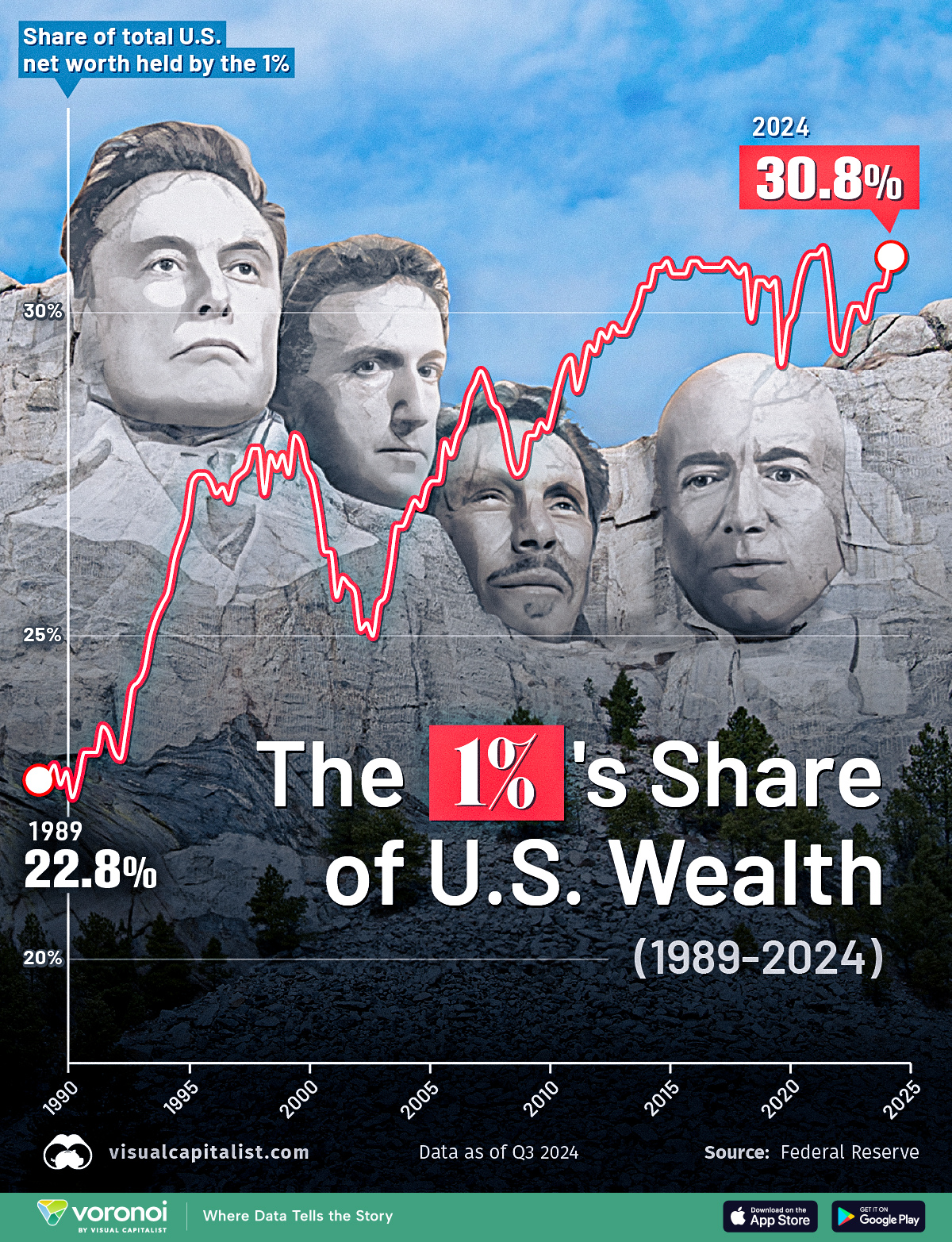
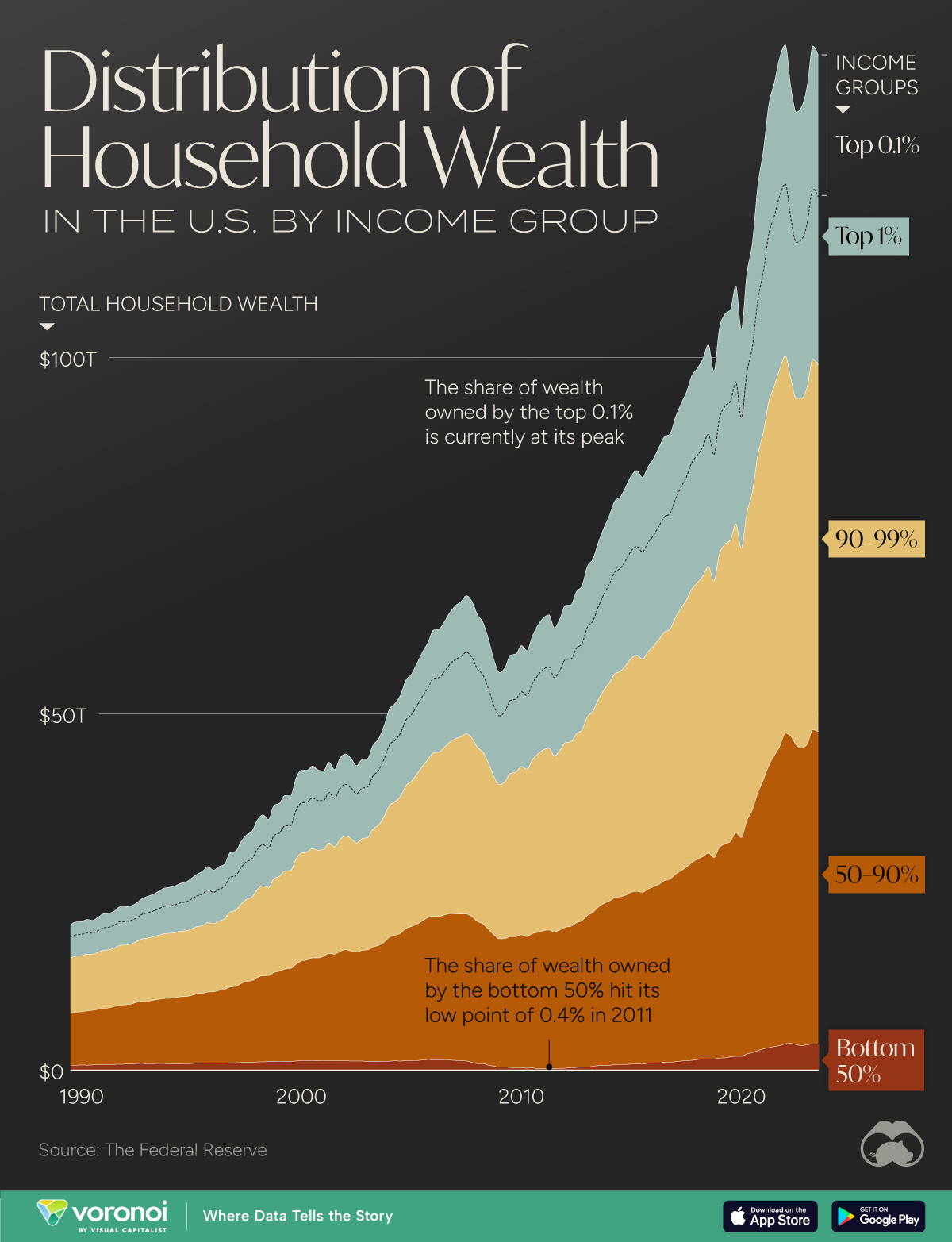
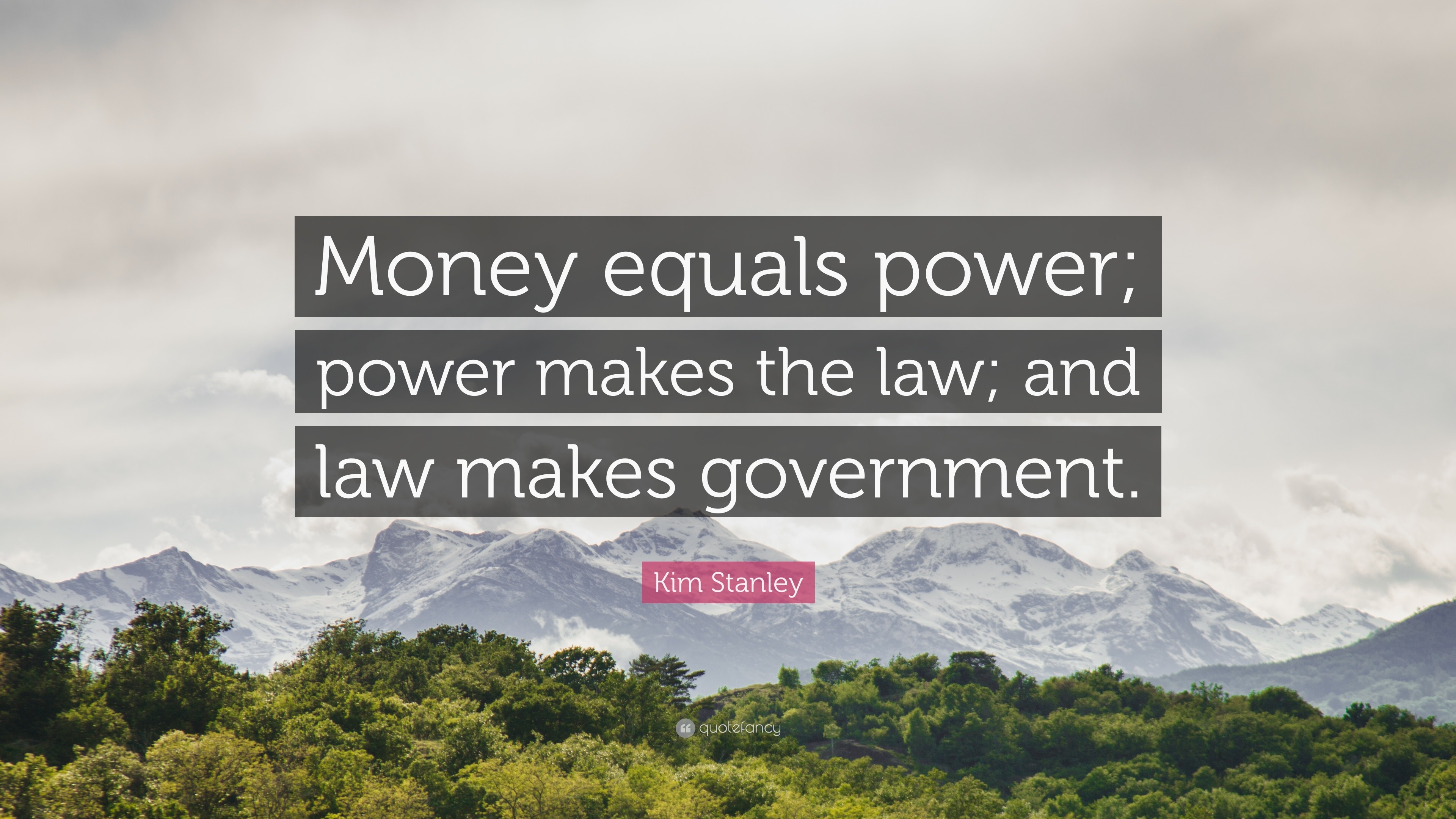
-
 Leontiskos
5.6kSo, the political question here seems to be : are we, in the established democracies — Gnomon
Leontiskos
5.6kSo, the political question here seems to be : are we, in the established democracies — Gnomon
I think the question is whether any of the regimes you speak about are properly called democracies, or ever were. The shift from the Articles of Confederation at the Constitutional Convention in the United States was explicitly anti-democratic. A republic was opted for instead of a democracy (and also, at least rhetorically, instead of a monarchy). A constitution instead of the more democratic articles of confederation. A republic is inherently more of an oligarchy than a democracy. The folks behind the Convention wanted something more oligarchical.
There is a myth about democracy which sees it as both good and natural. With this myth comes ideas which say that non-democratic rule in Russia or China or the United States is an aberration, and that any deviation from pure democracy must be bad. Historically speaking, these are not aberrations at all. In fact democracy is historically recognized to be a rather dubious form of government, which is why even before the Constitutional Convention we had significant checks on democratic forms.
One of Aristotle's many contributions is that the goodness or badness of any particular regime must always be judged relative to where it began. This is true regardless of one's regime hierarchy. Even if someone thought that democracy was the greatest thing since sliced bread, it would nevertheless remain true that the Soviet Union cannot be expected to shift from communism to democracy in the blink of an eye, and that the fall of the Berlin wall is not necessarily teleologically oriented towards a democratic regime. -
 Ludwig V
2.5k
Ludwig V
2.5k
I'm no expert, either. But somehow you are presenting the issues in a way I can get my head around.
There are definitely strange things going on in physics. I don't pretend to understand them, or even like them, but I suspect it will look very different in the future and our current obsessions will begin to seem as antiquated as Aristotle.But my current philosophy/physics book, by James B. Glattfelder*1 inadvertently raised an economic issue that also has political-philosophical significance. — Gnomon
The feudal system was developed in a much simpler society, in which money played a much smaller part than it does in ours. It was more concerned to regulate brute power rather than financial power. The development of international (in fact global) trade and of technology changed all that. I don't think there's any going back, though now that inheritance of money or at least the advantages gained for children through money is so much more important than it was does re-introduce an important element of the feudal system.*4. The feudal system — Gnomon
That's not wrong. Money equals control of resources in a functioning political system. One of the primary duties of a government is to ensure that is maintained. However, money is also a power base that is an alternative to the vote, and is perfectly capable of subverting it. That's why distribution of financial resources is not just an ethical question, but a political one.Money equals power; Power makes Law; Law makes Government
You are quite right about the myth of democracy. It has been incredibly damaging and arguable led us to the crisis that we are now facing.There is a myth about democracy which sees it as both good and natural. With this myth comes ideas which say that non-democratic rule in Russia or China or the United States is an aberration, and that any deviation from pure democracy must be bad. Historically speaking, these are not aberrations at all. In fact democracy is historically recognized to be a rather dubious form of government, which is why even before the constitutional convention we had significant checks on democratic forms. — Leontiskos
The traditional objection that democracy leads to anarchy is not wrong, and for a democracy to survive, there need to be checks and balances on the power of the vote. There's nothing special about that. An unchecked oligarchy or monarchy is also very likely to break down - especially if it forgets the ultimate power of the people. No regime can survive unless it has at least popular acquiescence. (French revolution, Russian revolution, American independence).
There's no doubt that democracy is fragile. But it is not unnatural. There have been democracies from time to time for a very long time. They come, they go. But then, so do authoritatrian regimes.
That I disagree with - although I don't know why Aristotle thought that, so I could be persuaded. I think the outcomes are what matters. After all, almost every regime is based on pure force. Though if you start with a selfish dictatorship, it does seem unlikely that the regime will turn into a benevolent government any time soon.One of Aristotle's many contributions is that the goodness or badness of any particular regime must always be judged relative to where it began. This is true regardless of one's regime hierarchy. — Leontiskos
However, I remain convinced that a regime that gives equal consideration to the needs and wants of all its people and does not inappropriately discriminate between its citizens is ethically preferable to one that is founded on false ideas of differences between people.
That optimism is a major cause of our problems now. That's why I think that revolution is, of itself, a Bad Idea. Reform is more likely to succeed.Even if someone thought that democracy was the greatest thing since sliced bread, it would nevertheless remain true that the Soviet Union cannot be expected to shift from communism to democracy in the blink of an eye, and that the fall of the Berlin wall is not necessarily teleologically oriented towards a democratic regime. — Leontiskos -
 Gnomon
4.3k
Gnomon
4.3k
Yes. I was using the term "democracy" loosely. That's why I referred to Communism as "an extreme form of representative Democracy" where the party symbolizes the populace. Most of the modern political systems have been attempts to work around the negative aspects of the ancient pyramidal social organization that came to be known as "Feudalism". That name refers to the fiefs or fees that vassals pay to their lords higher in the hierarchy. In some cases, all the political power was concentrated at the top : Absolute Dictators & Despots*1. But that never lasted long. So, some sort of spread-the-power compromise was always necessary to form a stable government.I think the question is whether any of the regimes you speak about are properly called democracies, or ever were. — Leontiskos
The French & American "democratic" revolutions were not caused by popular uprisings among the serfs & slaves, or by upper level Land-Lords*2, but mostly by the emerging class of urban intellectuals & bourgeoisie who resented the capricious whims of Trump-like dictators. Personality-cult autocrats are typically tolerated by the upper hierarchy, and even sometimes beloved by the bottom levels, who were isolated from the king's erratic behavior. While his nation was being pummeled by a power-mad despot across the channel, Churchill quipped that "democracy is the worst form of Government except for all those other forms that have been tried from time to time".
Modern European Democracies have enjoyed several generations of relative peace, as the industrial revolution has shifted some of the economic goods down the hierarchy to the common people. But the Oligarchy seems to be reversing that trend. And the technical revolution of the computer age, now seems to be replacing the serfs with servers, and common people with automatons*3. But that's another topic for a different thread. :cool:
*1. Edward Gibbon suggested that the increasing use of Oriental-style despotism by the Roman emperors was a major factor in the fall of the Roman Empire . . . .[9]
https://en.wikipedia.org/wiki/Despotism
*2. Thomas Jefferson was an exception, being a philosophical Landlord & slave-owner in a rural agricultural setting.
*3. Those who control Things will be controlled by those who control People, and everybody will be controlled by those who control Money.
The phrase "He who controls the things will be controlled by those who control people's money" suggests that true power lies not just in controlling physical resources or means of production (the "things"), but in controlling the financial system that enables their acquisition and distribution. This idea implies that those who control the flow of money have the ultimate ability to influence and potentially control those who control the "things"
https://www.google.com/search?client=firefox-b-1-d&q=quote+%3A+who+controls+thing+will+be+controlled+by+those+who+control+people++money -
 Leontiskos
5.6kYes. I was using the term "democracy" loosely. That's why I referred to Communism as "an extreme form of representative Democracy" where the party symbolizes the populace. Most of the modern political systems have been attempts to work around the negative aspects of the ancient pyramidal social organization that came to be known as "Feudalism". That name refers to the fiefs or fees that vassals pay to their lords higher in the hierarchy. In some cases, all the political power was concentrated at the top : Absolute Dictators & Despots*1. But that never lasted long. So, some sort of spread-the-power compromise was always necessary to form a stable government. — Gnomon
Leontiskos
5.6kYes. I was using the term "democracy" loosely. That's why I referred to Communism as "an extreme form of representative Democracy" where the party symbolizes the populace. Most of the modern political systems have been attempts to work around the negative aspects of the ancient pyramidal social organization that came to be known as "Feudalism". That name refers to the fiefs or fees that vassals pay to their lords higher in the hierarchy. In some cases, all the political power was concentrated at the top : Absolute Dictators & Despots*1. But that never lasted long. So, some sort of spread-the-power compromise was always necessary to form a stable government. — Gnomon
Hmm. Are you assuming that the modern state has always existed? That there was always a single "government" attached to "nations" in a single "hierarchy"? Historically I would say that the notion of top-down, centralized government is quite recent. The scope and breadth of a political entity was generally quite limited, and even where it existed the notion of a standing army was quite rare. Musk's "private security detail" was much more common historically than standing armies funded by nation states.
So, some sort of spread-the-power compromise was always necessary to form a stable government. — Gnomon
So what you say seems somewhat correct, but power that was never concentrated need not be "spread." I want to say that the prepackaged, natural state of power is already "spread."
In some cases, all the political power was concentrated at the top : Absolute Dictators & Despots*1. But that never lasted long. — Gnomon
Right. It doesn't last long because tyrannies (monopolies or attempted monopolies of coercion) do not tend to last long. But liberalism has ushered in an epoch where modern nation states have arrogated to themselves a monopoly of coercion. When we look at that phenomenon as moderns we tend to balk at Musk's "private" coercive entity and we also tend to view government itself as imbued with this top-down structure, thinking that government of the past must also have functioned in this centralized way.
It was probably much more a case of various loci of power and federation. "The government" could never have been reified in the past. "Whose government?" One would not talk about the government, but rather about this king, that prince, that duke, this city/polis, etc., and the power of any single agent would be geographically circumscribed, also diminishing with distance. There were empires which consisted of federated entities, but their longevity was always limited due to their more tenuous nature.
This idea implies that those who control the flow of money have the ultimate ability to influence and potentially control those who control the "things" — Gnomon
In this too I see a modern notion of the centralization of money. Without modern nation states there simply is no centralization of money. There is no Federal Reserve Bank. In a more fundamental sense money is worth very little. It is wealth, arms, and population that are more important in a fundamental sense. Money can be important in procuring such things, but without strong centralization there is no one who "controls the money." -
 Leontiskos
5.6kThat optimism is a major cause of our problems now. That's why I think that revolution is, of itself, a Bad Idea. Reform is more likely to succeed. — Ludwig V
Leontiskos
5.6kThat optimism is a major cause of our problems now. That's why I think that revolution is, of itself, a Bad Idea. Reform is more likely to succeed. — Ludwig V
Agreed. :up:
I may not get a chance to revisit the rest of your post. Time will tell. :grimace: -
 Gnomon
4.3k
Gnomon
4.3k
No. I'm making broad philosophical/metaphorical associations, and using modern terminology to describe ancient hierarchical organizations. The point is that, what we now call Oligarchy has always existed in some form. :wink:Hmm. Are you assuming that the modern state has always existed? That there was always a single "government" attached to "nations" in a single "hierarchy"? — Leontiskos
Yes. The modern notion of a law-bound government would not apply to most ancient societies. It was mostly rule-of-men instead of rule-of-law. But the OP is intended to imply that the modern break-down of lawful governments is allowing strong-men (oligarch) to rule their little fiefdoms. :smile:It was probably much more a case of various loci of power and federation. "The government" could never have been reified in the past. — Leontiskos
Yes. The fiefs (tariffs, taxes) in pre-modern societies were mainly in the form of goods & services. Everything else was bartered : a pig for a dozen chickens. And gold or silver money was mostly limited to exchanges at the top, between Lords & Kings. Yet, again, the point of the OP is that modern Oligarchs seem to have a metaphorical license to print money*1. :cool:In this too I see a modern notion of the centralization of money. Without modern nation states there simply is no centralization of money. — Leontiskos
*1. License to print money : In the context of an oligarchy, this idiom takes on a darker connotation. An oligarchy is a system of government where a small group of wealthy and powerful individuals or families hold control. These individuals, often referred to as oligarchs, can leverage their economic power to influence political decisions and shape policies that benefit their own interests, rather than the needs of the broader population.
https://www.google.com/search?client=firefox-b-1-d&q=oligarch+license+to+print+money -
 Gnomon
4.3k
Gnomon
4.3k
In the OP, the economic math revealed invisible structures within the complexities of the world economic systems : One example is Ownership Networks : “Here the nodes can be corporations, governments, foundations, or physical persons”. He says this kind of analysis “reveals architectures of power invisible to any other type of examination. . . . . this economic power is much more unequally distributed than income or wealth. . . . . This highly-skewed distribution of power has economy-wide implications related to anti-competitiveness, tax avoidance, the role of offshore financial centers, and systemic risk.” Hence "free market capitalism" has devolved into private markets for Oligarchs, and off-the-books black markets for wealthy criminals. :sad:↪Gnomon
yes, he’s hit the nail on the head. That is what’s going on and capitalism, as in free market capitalism has turned toxic. — Punshhh -
 ChatteringMonkey
1.7k
ChatteringMonkey
1.7k
The thing that is different now is the mobility of capital. Companies or not beholden anymore to some place or community, but can shop all over the world and force favourable conditions from governments who are put into competition with each other.
So yes things tend to oligarchy, the question to me seems what kind of oligarchy. The king and nobility in a feudal system usually still had some responsibility to their subjects, because they were ultimately still dependent on them for their power. The current oligarchs have no such issues, they can be parasitic to a place and community and just pick up and relocate to somewhere else when things go south. -
 ssu
9.8k
ssu
9.8k
Actually, the current globalized economy gives a rise to oligopolies.The thing that is different now is the mobility of capital. Companies or not beholden anymore to some place or community, but can shop all over the world and force favourable conditions from governments who are put into competition with each other.
So yes things tend to oligarchy, the question to me seems what kind of oligarchy. — ChatteringMonkey
What Economists love is a Perfect Market with Perfect Competition, which is extremely theoretical and basically only used because of the mathematical easiness of the model. Monopolies usually happen only by a state or government creating a monopoly. A Duopoly (market controlled by two companies) is rare if not nonexistent. Yet an Oligopoly, few large companies and corporations controlling the vast majority of the global market is the absolute norm.
Just pick any industry or service and you will find few giants ...and then local regional small companies. This happens both because of sovereign states are in trade packs, but also because one company/corporation cannot simply control all the markets everywhere. Natural monopolies don't emerge in reality. As the size of a corporation grows, so does all the inefficiencies of a large organization with bureaucracy, red tape, etc.
Once we understand that a globalized economy turns production and services to a market controlled by Oligopolies, then we can understand that the situation gives rise also to oligarchs assuming we have capitalism.
Perfect Competition is only a theoretical device, when you just look at what it would take to have a perfect market and perfect competition. Oligopolies are far more difficult to model.

-
 Gnomon
4.3k
Gnomon
4.3k
That is the problem with our current socio-economic system : money & power have become separated from political responsibility. The Oligarchs only have responsibility to their share-holders. But those who also hold the majority of shares can do as they please, with little limitation on their inclination. Fortunately, most of the "garchs" seem to be somewhat restrained by personal virtue and by public opinion. But their occasional ostentatious displays of over-weening wealth, such as a $50million wedding, may come to seem business-as-usual. :smile:So yes things tend to oligarchy, the question to me seems what kind of oligarchy. The king and nobility in a feudal system usually still had some responsibility to their subjects, because they were ultimately still dependent on them for their power. The current oligarchs have no such issues, they can be parasitic to a place and community and just pick up and relocate to somewhere else when things go south. — ChatteringMonkey -
 frank
19k
frank
19k
I wonder if the whole global system is just on auto-pilot with no one really "running" any of it.
The Trump administration recently passed a bill that effectively takes from the poor and gives to the rich. There's no mention of some policy or principle. Why are we doing that? Because that's what we do.
I've been looking lately at what the weather will be like in 2100. Even that soon some areas that are presently occupied will be too hot for human viability. I think that will become the driver of policy eventually. -
 Gnomon
4.3k
Gnomon
4.3k
My worldview imagines that the world is on "auto-pilot", and that internal control-system, Natural Law, seems to be functioning properly to keep the cosmos on course. But of course, any journey has its ups & downs, its cross-winds, and barriers to progress. So the historical track of progress is not a straight line, but a sinuous path full of twists & turns. Even the biblical Creation account, with God at the controls, at first looked like the story began at the destination : a perfect Paradise. But then, along came the snake to knock God's ship off course. And the rest is, as they say, history : full of diversions and course corrections.I wonder if the whole global system is just on auto-pilot with no one really "running" any of it. — frank
If you look closely at a specific historical era, it may seem chaotic and directionless. But if you zoom-out, and take a Hegelian Dialectic*1 perspective, you might notice that positives & negatives tend to balance-out over time. A historical thesis can be portrayed as a physical vector composed of both political force and philosophical direction. Then along comes a new vector to knock the ship off-track. So, the historical path will look like a meandering trail, except the average {historical direction below} is always pointed at the intended destination.
Physically, the throttle & steering of the world's autopilot is what we know as the First & Second & Third laws of Thermodynamics*2 : Energy vs Entropy & Equilibrium. The third law keeps the others from going to extremes. For example, extreme Energy would recreate the Hot Big Bang, and extreme Entropy would result in a Big Freeze. But a balance between them keeps the universe, especially the temperate planet Earth, on course to whatever destination the Bang was aimed at.
Closer to home, human culture has always had its Tyrants and Philosopher Kings, its Oligarchs and its Democratic leaders. For example, Rome began with war-lords at the helm, but eventually became a stable Republic, which later was ruled by Tyrants & Emperors, and eventually invaded by ransacking barbarians. But the Roman civilization, as a political entity, lasted for over a thousand years. And Roman culture continues in Europe to this day.
Our Cosmos has been cruising along for 14B earth-years, and finally reached the Promised Land of a habitable planet, whence Politics eventually emerged from Physics. Where we go from here remains to be seen by whatever observers are paying attention. :smile:
*1. The Hegelian dialectic is a philosophical concept describing a process of change and development through the interaction of opposing ideas. It involves a thesis, an antithesis, and a synthesis. The synthesis then becomes a new thesis, and the process repeats, driving progress and understanding
https://www.google.com/search?client=firefox-b-1-d&q=hegelian+dialectic
*2. The three laws of thermodynamics are: 1) the law of conservation of energy, stating that energy cannot be created or destroyed, only transformed; 2) the law of entropy increase, stating that the entropy of an isolated system always increases over time; and 3) the law of entropy at absolute zero, stating that the entropy of a perfect crystal approaches zero as the temperature approaches absolute zero.
https://www.google.com/search?client=firefox-b-1-d&q=first+law+of+thermodynamics
WE SEEM TO BE ENTERING THE PHASE OF DEMAGOGY
Let's hope the chaotic stage of Ochlocracy doesn't come to pass
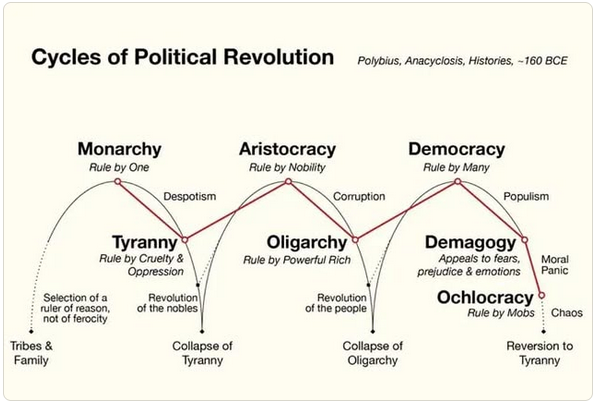
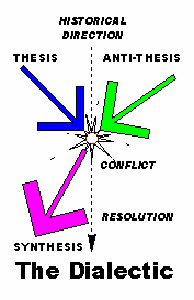
-
 Punshhh
3.6k
Punshhh
3.6k
Power and capital are already adjusting for this. Which is partly why the populists are shouting so loud at the moment.I've been looking lately at what the weather will be like in 2100. Even that soon some areas that are presently occupied will be too hot for human viability. I think that will become the driver of policy eventually. -
 Punshhh
3.6kIn the OP, the economic math revealed invisible structures within the complexities of the world economic systems : One example is Ownership Networks : “Here the nodes can be corporations, governments, foundations, or physical persons”. He says this kind of analysis “reveals architectures of power invisible to any other type of examination. . . . . this economic power is much more unequally distributed than income or wealth. . . . . This highly-skewed distribution of power has economy-wide implications related to anti-competitiveness, tax avoidance, the role of offshore financial centers, and systemic risk.” Hence "free market capitalism" has devolved into private markets for Oligarchs, and off-the-books black markets for wealthy criminals. :sad:
Punshhh
3.6kIn the OP, the economic math revealed invisible structures within the complexities of the world economic systems : One example is Ownership Networks : “Here the nodes can be corporations, governments, foundations, or physical persons”. He says this kind of analysis “reveals architectures of power invisible to any other type of examination. . . . . this economic power is much more unequally distributed than income or wealth. . . . . This highly-skewed distribution of power has economy-wide implications related to anti-competitiveness, tax avoidance, the role of offshore financial centers, and systemic risk.” Hence "free market capitalism" has devolved into private markets for Oligarchs, and off-the-books black markets for wealthy criminals. :sad:
Yes and this will only accelerate with the looming climate crisis. Also the breakdown in ethical practices and codes. We are back to where we were when Moses came along I’m afraid. -
 Punshhh
3.6k
Punshhh
3.6k
Yes, I agree with this. But this time it’s different and that’s because of the size of the global population, the rate of the stripping of natural resources and the destruction of ecosystems. We have reached the point where the destruction and pollution of the planet is at a tipping point. The ecosystem and life support systems in nature are starting to shrink, while rates of pollution and the size of the population are still rising.If you look closely at a specific historical era, it may seem chaotic and directionless. But if you zoom-out, and take a Hegelian Dialectic*1 perspective, you might notice that positives & negatives tend to balance-out over time. A historical thesis can be portrayed as a physical vector composed of both political force and philosophical direction. Then along comes a new vector to knock the ship off-track. So, the historical path will look like a meandering trail, except the average {historical direction below} is always pointed at the intended destination.
In order to halt and reverse these trends it will require a coordinated global effort between nation states. However, once there is a breakdown in global cooperation and there are more and more failed states and states locked into populist control. This effort will fail, making the crisis more acute.
Once the mass starvation and migration begins to happen, it will probably be too late. The number of states making a real contribution to the global effort will reduce. Resulting in a cascade of failure, resulting in the establishing of three (in my opinion) fortress blocks. The North American block, the European block and the Far Eastern block. These fortresses will try to keep some level and prosperity within their borders and defend them. While everyone else will just have to survive as best they can. Reference Mad Max. -
 ChatteringMonkey
1.7kThat is the problem with our current socio-economic system : money & power have become separated from political responsibility. — Gnomon
ChatteringMonkey
1.7kThat is the problem with our current socio-economic system : money & power have become separated from political responsibility. — Gnomon
China doesn't hesitate to put oligarchs in jail, there the political still seems to control economic interests. Not sure what that means, but one could say it is at least still possible to have money bow for some kind of political project. -
 Gnomon
4.3k
Gnomon
4.3k
Some Utopian sci-fi stories envision such a global, or solar-system-wide, or multi-galaxy foundation based on some form of representative or direct democracy, so that the numerical power of the lower classes (98%) can balance the economic power of the upper classes (2%).In order to halt and reverse these trends it will require a coordinated global effort between nation states. — Punshhh
However, coordination between government "blocks" seems to depend more on the invisible-hand*1 of self-interest economic trade (market forces), than on rational political agreements. On the other hand, there is another invisible hand at play : Natural Forces. So, as natural disasters impinge on the flow of money, I suspect that international political changes will be grudgingly instituted by Oligarchs, whose fiefdoms are bleeding cash. :smile:
*1. What Is the Invisible Hand in Economics?
The "invisible hand" is a metaphor describing how, in a free market economy, individual self-interest can lead to positive outcomes for society as a whole. It suggests that individuals, acting in their own best interest, unintentionally promote the public good through their economic activities.
https://www.google.com/search?client=firefox-b-1-d&q=invisible+hand+economics

INVISIBLE HAND OF NATURAL FORCES
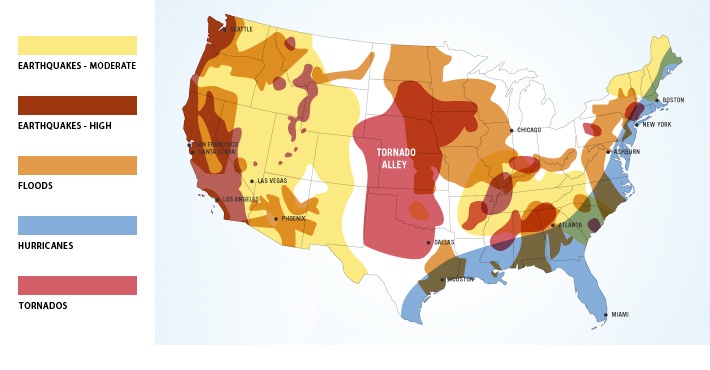
Welcome to The Philosophy Forum!
Get involved in philosophical discussions about knowledge, truth, language, consciousness, science, politics, religion, logic and mathematics, art, history, and lots more. No ads, no clutter, and very little agreement — just fascinating conversations.
Categories
- Guest category
- Phil. Writing Challenge - June 2025
- The Lounge
- General Philosophy
- Metaphysics & Epistemology
- Philosophy of Mind
- Ethics
- Political Philosophy
- Philosophy of Art
- Logic & Philosophy of Mathematics
- Philosophy of Religion
- Philosophy of Science
- Philosophy of Language
- Interesting Stuff
- Politics and Current Affairs
- Humanities and Social Sciences
- Science and Technology
- Non-English Discussion
- German Discussion
- Spanish Discussion
- Learning Centre
- Resources
- Books and Papers
- Reading groups
- Questions
- Guest Speakers
- David Pearce
- Massimo Pigliucci
- Debates
- Debate Proposals
- Debate Discussion
- Feedback
- Article submissions
- About TPF
- Help
More Discussions
- Other sites we like
- Social media
- Terms of Service
- Sign In
- Created with PlushForums
- © 2026 The Philosophy Forum






